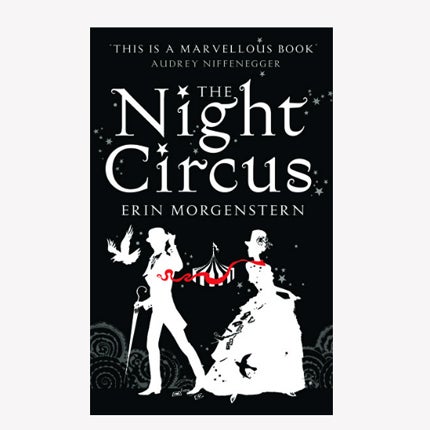The Night Circus, By Erin Morgenstern
A debut that lacks the magic touch

Your support helps us to tell the story
From reproductive rights to climate change to Big Tech, The Independent is on the ground when the story is developing. Whether it's investigating the financials of Elon Musk's pro-Trump PAC or producing our latest documentary, 'The A Word', which shines a light on the American women fighting for reproductive rights, we know how important it is to parse out the facts from the messaging.
At such a critical moment in US history, we need reporters on the ground. Your donation allows us to keep sending journalists to speak to both sides of the story.
The Independent is trusted by Americans across the entire political spectrum. And unlike many other quality news outlets, we choose not to lock Americans out of our reporting and analysis with paywalls. We believe quality journalism should be available to everyone, paid for by those who can afford it.
Your support makes all the difference.Circus stories have come a long way from Enid Blyton and Noel Streatfeild, where the only challenge to everyone enjoying a thoroughly good time might come from the odd mean-minded ringmaster.
Now, as in today's real thing, they concentrate more on illusions and the unexpected, with a hint of cruelty never far away.
In this much-hyped first novel, a travelling circus only works at night and always strikes its multitude of tents by daybreak. Its shows are truly amazing because real magic plays a large part. But it is also the arena around which two late 19th-century enchanters pitch their protégées against each other, in a contest that has to end in death for one of them.
Marco and Celia, the pair in question, further complicate matters by falling in love. This is particularly inconvenient because, in ways that are never made entirely clear, Celia's survival is intrinsic to the continuation of the circus itself.
Erin Morgenstern is an American multi-media artist who describes her writing as "fairy tales in one way or another". But, however lavish the exotic icing on this literary cake, nothing can ultimately disguise the underlying doughy reality of a repetitive story, flatly narrated. Characters do as they are told rather than reveal themselves, and magic becomes devalued because it can be performed so easily. Our own greatly-missed Diana Wynne Jones could have achieved so much more with this plot using one tenth of the words.
It may work better as the film it seems bound to become, with the author's painterly eye for detail paying dividends once her fantasies are realised on screen. The romance between the young lovers also calls out for star treatment as it becomes central to the story, with enough declarations of total love towards the end to satisfy romantically minded readers of any age.
There are some touching moments involving minor characters, plus genuine tension as Celia and Marco decide whether they can trust each other. Celia's unpleasant childhood also has chilling moments; when she breaks away from her father, she hurls a copy of As You Like It at him, which then mortifyingly passes through his chest without pause – since he is now a ghost. But despite the fact that his name is Prospero, ploughing through the story of him and his daughter is reminiscent not so much of The Tempest as of a mild but persistent attack of trapped wind.
Join our commenting forum
Join thought-provoking conversations, follow other Independent readers and see their replies
Comments